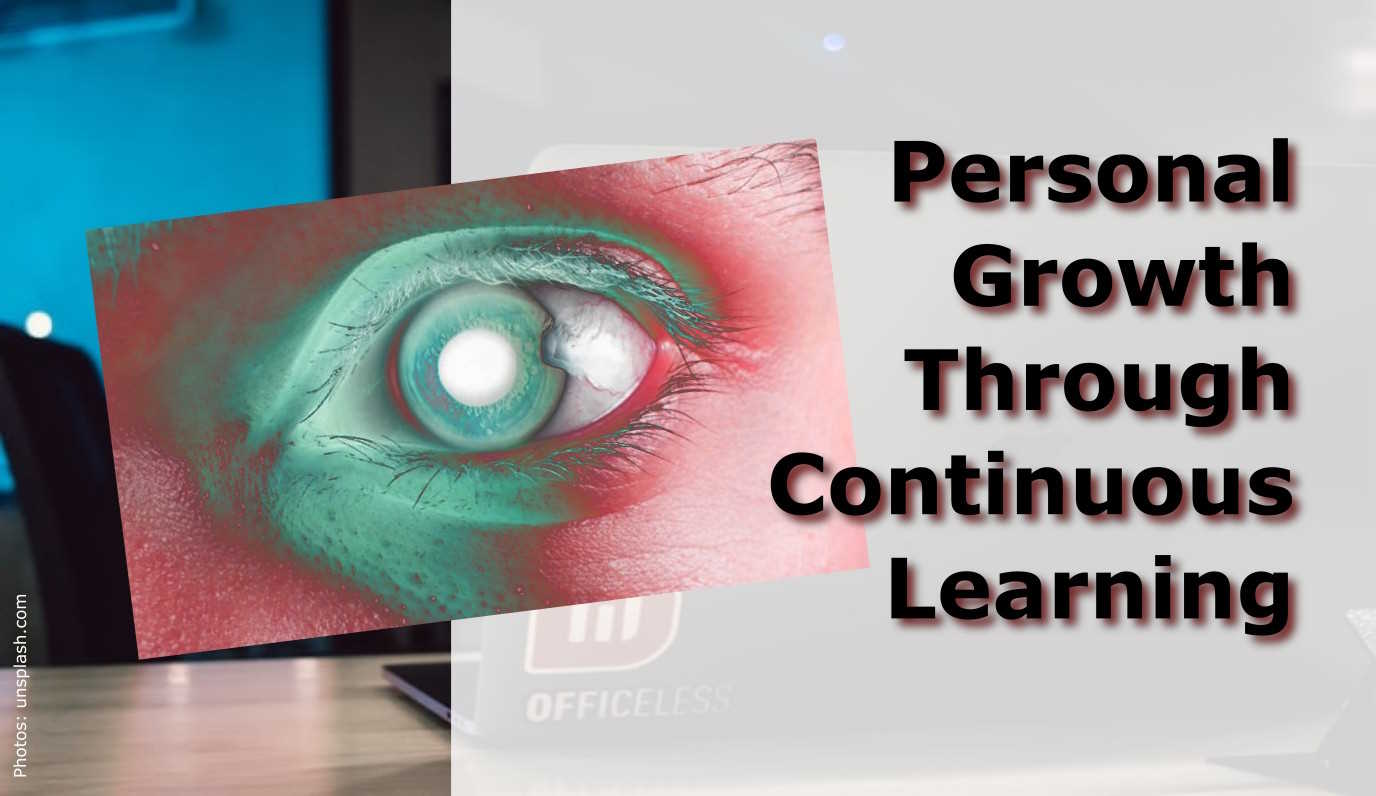Personal Growth Through Continuous Learning

Charting a Seamless Journey from ML Research to Real-world Implementation
- The Importance of Continuous Learning
- Strategies for Continuous Learning
- Implementing Continuous Learning in Daily Life
- Overcoming Challenges in Continuous Learning
- Personal Experiences and Testimonials
- Conclusion
“The only thing that is constant is change.” – Heraclitus
In the ever-evolving tech industry, continuous learning is not just a luxury; it’s a necessity. Embracing a mindset of lifelong learning can lead to substantial personal and professional growth. In this post, we’ll explore why continuous learning is crucial, strategies to incorporate it into your life, and how to overcome common challenges.
The Importance of Continuous Learning
Adapting to Change
The tech industry is characterized by rapid advancements and constant innovation. Staying updated with the latest technologies and methodologies is essential to remain relevant and competitive in your field. Continuous learning ensures that you can adapt to these changes and leverage new tools and techniques effectively.
Career Advancement
Continuous learning opens up new career opportunities and paves the way for professional growth. Acquiring new skills can lead to promotions, transitions into new roles, or even entirely new career paths. Employers value individuals who are proactive about their development and who bring fresh knowledge and skills to the table.
Personal Fulfillment
Learning new things brings a sense of accomplishment and boosts self-confidence. It also fosters intellectual curiosity and personal growth. Engaging in continuous learning can be deeply satisfying and fulfilling, enriching both your professional and personal life.

Photo by Susan Wilkinson on Unsplash
Strategies for Continuous Learning
Formal Education
Pursuing advanced degrees, certifications, and professional courses can provide structured and comprehensive learning experiences. Universities, community colleges, and professional organizations offer various programs that can help you gain in-depth knowledge in your area of interest.
Online Resources
The internet is a treasure trove of learning resources. Here are some specific platforms and courses that are particularly valuable for AI and ML professionals:
- Coursera: Offers a variety of AI and ML courses from top universities and companies. Notable courses include Andrew Ng’s “Machine Learning” and the “Deep Learning Specialization” by deeplearning.ai.
- edX: Provides courses from institutions like MIT and Harvard. Check out the “AI for Everyone” course and “MicroMasters Program in Artificial Intelligence” from Columbia University.
- Udacity: Known for its Nanodegree programs, which are more intensive and hands-on. The “Artificial Intelligence Nanodegree” and “Deep Reinforcement Learning Nanodegree” are popular choices.
- LinkedIn Learning: Offers a broad range of courses that can help you develop both technical and soft skills. Courses like “Advanced AI: Deep Reinforcement Learning in Python” can be very beneficial.

Photo by Susan Wilkinson on Unsplash
Books and Journals
Reading books and academic journals is a great way to gain deep insights into specific topics. Here are some key publications and books in the AI and ML field:
- Books: “Deep Learning” by Ian Goodfellow, Yoshua Bengio, and Aaron Courville, and “Hands-On Machine Learning with Scikit-Learn, Keras, and TensorFlow” by Aurélien Géron.
- Journals: IEEE Transactions on Neural Networks and Learning Systems, Journal of Machine Learning Research, and arXiv.org for the latest preprints in AI and ML.
Workshops and Conferences
Attending industry events, workshops, and conferences provides opportunities to learn from experts and network with peers. Key events include:
- NeurIPS (Neural Information Processing Systems): One of the most prestigious conferences in AI and ML.
- ICML (International Conference on Machine Learning): Another leading conference that covers a wide range of ML topics.
- CVPR (Conference on Computer Vision and Pattern Recognition): Focuses on computer vision and related technologies.
Mentorship and Peer Learning
Finding a mentor can provide guidance and support as you navigate your learning journey. Engaging in peer learning through study groups and professional communities can also be beneficial. Platforms like Meetup and LinkedIn groups can help you connect with like-minded individuals.

Photo by Susan Wilkinson on Unsplash
Implementing Continuous Learning in Daily Life
Setting Goals
Set specific, achievable learning goals to stay focused and motivated. Whether it’s learning a new programming language or earning a certification, having clear objectives can help you track your progress and stay committed.
Time Management
Allocate dedicated time for learning amidst your busy schedule. Prioritize tasks, avoid distractions, and make learning a regular part of your routine. Even dedicating just 30 minutes a day can make a significant difference over time.
Practical Application
Apply new knowledge in real-world scenarios to reinforce learning and gain practical experience. Working on projects, participating in hackathons, or contributing to open-source initiatives are great ways to put theory into practice.

Photo by Susan Wilkinson on Unsplash
Overcoming Challenges in Continuous Learning
Procrastination and Motivation
Overcome procrastination by setting small, manageable tasks and rewarding yourself for completing them. Find intrinsic motivation by focusing on the personal and professional benefits of learning.
Balancing Work and Learning
Balancing work responsibilities with learning activities can be challenging. Create a schedule that integrates learning into your daily routine without feeling overwhelmed. Prioritize tasks and set realistic goals to maintain a healthy balance.
Staying Current
Stay updated with the latest trends and developments in the industry by subscribing to newsletters, following thought leaders on social media, and joining professional communities. Regularly consuming industry news and research will keep you informed and inspired.

Photo by Susan Wilkinson on Unsplash
Personal Experiences and Testimonials
My Journey
In my own journey, continuous learning has been a cornerstone of my professional growth. From pursuing advanced degrees to taking online courses and attending conferences, each step has contributed to my development and success. The challenges along the way have taught me resilience and adaptability.
Conclusion
Continuous learning is a lifelong journey that can lead to significant personal and professional growth. By setting goals, managing your time effectively, and applying new knowledge, you can stay ahead in the ever-changing tech landscape. Start your journey today and embrace the endless possibilities that continuous learning offers.